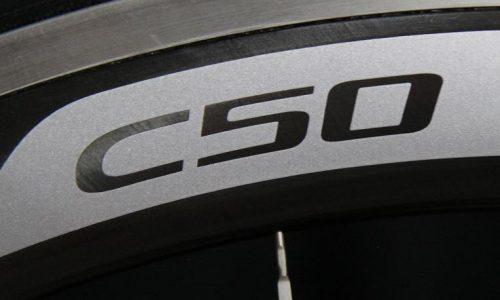When it comes to entry-level mountain bike groupsets, few components come close to the reliability and affordability of the groupsets found on the lower end Shimano’s groupset hierarchy: Tourney and Altus.
Those two groupsets may be basic, but they’re anything but low-quality. The latest iterations of Tourney and Altus have also benefited from trickle-down features from previous generations of higher groupset tiers.
In this article we look at what each of those groupsets offer, the riding applications to which they’re best suited and the differences between them.
Shimano Altus M2000

The latest Altus groupset, with the series code M2000, has seen several improvements over the previous generation, including an additional gear which brings it up to 9-speeds.
The cassette benefits from Shimano’s Hyperglide shifting technology and comes in 11-32t, 11-34t and 11-36t options in silver or black finishes. Altus M2000 series also gets an updated triple crankset. With 1x and 2x dominating the mountain bike world now, touring bikes are still loyal to the triple chainring crank.

The Altus rear derailleur borrows several features from its Alivio sibling, which sits two spots higher on Shimano’s component hierarchy, including the Shadow technology which tucks the derailleur further in and out of the way of the danger of strikes on rocks and other objects on the trail.
The Altus front derailleur comes in top and bottom swing options (if you have a bike that requires a top swing front derailleur, you might want to consider this option from the Alivio range).
Altus shifters still retain the signature combo shifter/brake lever pod design which are popular on many trekking and commuter bikes. The M2000 series introduces a hydraulic brake option as well with the ST-EF505 shifter/brake unit.
Shimano Tourney
The Tourney groupset sits at the bottom of Shimano’s mountain bike range, right below Altus. Tourney is the groupset with only the bare essentials, and is commonly seen on entry-level and budget city and hybrid bicycles.

Tourney components come in model variants of Tourney TZ and Tourney TX. Tourney TX is slightly better than TZ in shifting quality and smoothness. Your choice of speeds is either 7 or 8 with a triple crankset.
Shifters in the Tourney range come in several flavors, including simple thumb shifters, grip-style (aka Revoshift) shifters as well as shifter/mechanical brake combo units similar to what is offered under the Altus range.
 Rear derailleurs come in 16 different choices and there are 12 front derailleur options. Rear cogs come in both freewheel as well as cassette configurations and the Tourney TX rear derailleur will pair with Shimano’s Mega Range freewheel, which is essentially a 7-speed freewheel equipped with a 34t largest sprocket, offering a better gear ratio for steeper climbs.
Rear derailleurs come in 16 different choices and there are 12 front derailleur options. Rear cogs come in both freewheel as well as cassette configurations and the Tourney TX rear derailleur will pair with Shimano’s Mega Range freewheel, which is essentially a 7-speed freewheel equipped with a 34t largest sprocket, offering a better gear ratio for steeper climbs.
With components in the Tourney line, you get components that will work well for the intended purpose (i.e. budget hybrid and commuter bikes) but there are several compromises including cheaper materials like lower-grade plastic and heavy steel on derailleur, which result in heavier parts.
Also, these components will likely require more frequent adjustment than Shimano parts higher on the groupset hierarchy. It could be argued that for a groupset aimed squarely at the cheaper recreational bicycle market, the Tourney groupset components do what they should: provide the essentials of bicycle drivetrain features at a very low price point.
You won’t be getting any of the fancy shifting or braking technologies Shimano’s mid to upper tier components are known for (such as Hyperglide, Shadow, etc.), but that’s the point of the Tourney groupset: it is a super affordable, stripped down yet functional set of components for bikes that see light-duty use.
Which should you pick? Altus vs Tourney
If you’re in the market for some budget drivetrain components or even a full groupset for a cheap bike, both of these groupsets might be already on your radar.
The Altus M2000 series offers many features that make it an excellent option for a bike that sees the occasional trail ride, including a side swing derailleur that allows for a larger rear tire clearance compared to Tourney’s top swing front derailleur.
Tourney components, being bottom of the Shimano range, are functional but have a cheaper construction that is evident in the weight, materials and rather crude (yet acceptable for the intended purpose) shifting quality.
Do keep in mind that if you intend to do any kind of serious off-road riding, you’d be better off spending some extra cash and upgrading to the Alivio or even Deore groupsets.
However, for a basic bike that will see the occasional trail ride, the Altus drivetrain would not be a bad choice.
Go with Tourney only if the parts will be going on a budget bike that only gets ridden on paved roads and flat terrain.

Hani Morsi is a seasoned multi-discipline cyclist with a particular liking for mountain and gravel bikes. Hani is also a mountain bike coach, trail builder and experienced bike mechanic.



I really hate that this article claims that these groupsets are good, then suggests you upgrade to Alivio if you want reliability off-road. Shimano sells garbage components at the bottom of their line in order to justify overcharging for their upper line.
If you want quality budget components without overpaying for Shimano’s scam, then you should be looking at Microshift or Sensah. Both of these brands make high quality clutched groupsets that rival Deore or Eagle for a fraction of the cost.
You don’t need to spend more to get better quality. You need to avoid overpaying.